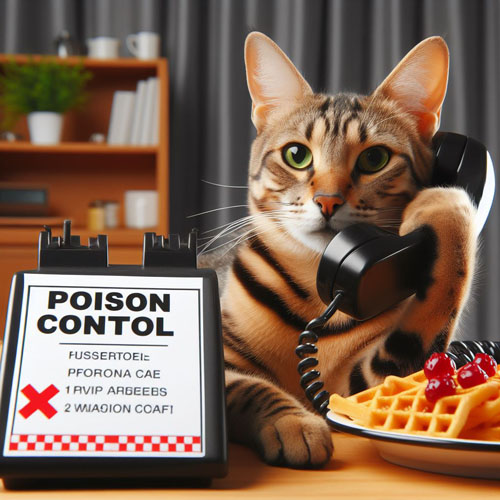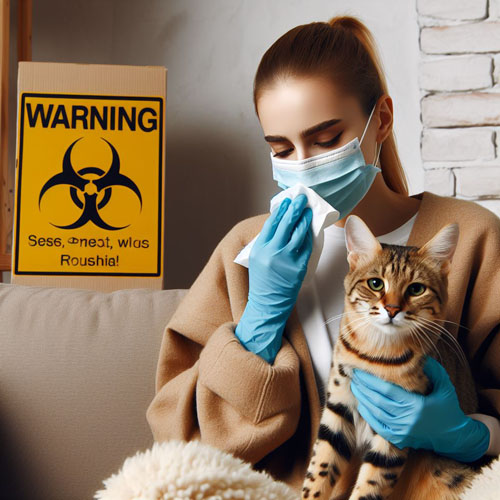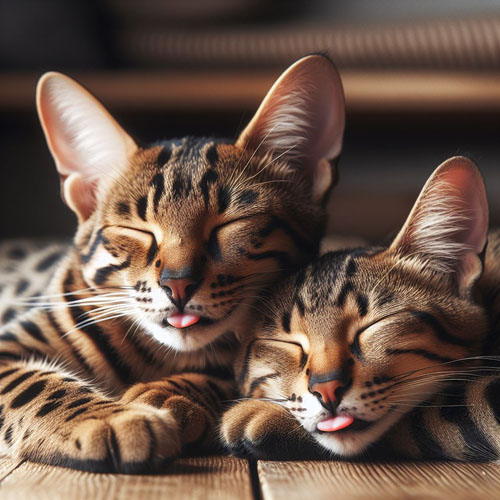Grieving the Loss of Your Savannah Cat
Navigating the Pain: Grieving the Loss of Your Savannah Cat
Losing a beloved pet, such as a Savannah Cat, can be a profoundly challenging experience. The grief that follows is a unique and personal journey, often accompanied by a range of emotions. Understanding the grieving process, especially in cases involving euthanasia, is crucial for pet owners. In this article, we will explore the dynamics of grieving the loss of a cherished Savannah Cat, the emotional impact following euthanasia, and when seeking professional help becomes essential.
Understanding the 5 stages of Grief: The stages of grief, also known as the Kübler-Ross model, were initially introduced by psychiatrist Elisabeth Kübler-Ross in her 1969 book “On Death and Dying.” These stages are not necessarily experienced linearly, and individuals may go through them in different orders or revisit certain stages. The stages are meant to provide a framework for understanding the emotional process that individuals may undergo when facing a significant loss, such as the loss of a loved one or a pet. The five stages are:
- Denial: In the initial stage, individuals may have difficulty accepting the reality of the loss. They might experience shock, disbelief, or a sense of numbness. Denial acts as a protective mechanism, allowing individuals to gradually absorb the impact of the loss.
- Anger: As the reality of the loss sets in, individuals may begin to feel a range of intense emotions, including anger. This anger can be directed towards oneself, others, or even the situation. It is a natural response to the feelings of helplessness and vulnerability associated with the loss.
- Bargaining: In an attempt to regain control or make sense of the situation, individuals may engage in bargaining. This involves making deals or promises in the hope of reversing or mitigating the loss. It’s a way of trying to find a solution to the pain and sadness.
- Depression: The stage of depression is marked by a deep sense of sadness and mourning. It involves coming to terms with the magnitude of the loss and the changes it brings. Feelings of loneliness, isolation, and profound sadness are common during this stage.
- Acceptance: The final stage is acceptance, where individuals begin to find a way to live with the reality of the loss. It doesn’t necessarily mean that the pain disappears, but rather individuals start to integrate the loss into their lives and find a new normal. Acceptance is about learning to move forward and finding ways to cherish the memories without being consumed by grief.
It’s crucial to note that these stages are not a one-size-fits-all model, and not everyone will experience each stage. Moreover, individuals may go through the stages at different paces and may revisit certain stages at various times. Grieving is a highly individualized process, and there is no right or wrong way to navigate through it.
Furthermore, the grief experienced after the loss of a pet may be accompanied by a unique set of challenges. Pet owners may grapple with feelings of guilt, questioning whether they made the right decision for their Savannah Cat’s well-being. It is important to recognize that euthanasia is often a humane choice made out of love and compassion for a suffering animal.
Navigating the complex terrain of grief involves allowing oneself the time and space to experience and express the emotions that arise. Whether through journalism, creating a memorial, or seeking support from friends and family, finding healthy outlets for grief is essential. Ultimately, understanding grief as a natural and individualized process enables pet owners to embark on a journey of healing and remembrance for their cherished Savannah Cat.
Grief Following Euthanasia: The decision to euthanize a beloved pet, such as a Savannah Cat, is one of the most challenging choices a pet owner may face. While it is a compassionate decision made to alleviate the suffering of a cherished companion, it can bring about a unique and profound sense of grief. Understanding the dynamics of grief following euthanasia is crucial for individuals grappling with the aftermath of such a difficult decision.
- Guilt and Decision-Making: Pet owners often find themselves plagued by feelings of guilt after deciding to proceed with euthanasia. Questions like “Did I make the right choice?” or “Could I have done more?” may linger. It is important to acknowledge that the decision to euthanize is often made out of love and a desire to prevent unnecessary suffering. Seeking reassurance from veterinarians about the validity of the decision can help in easing these burdensome feelings.
- Moral and Ethical Reflection: The act of euthanasia can trigger moral and ethical considerations. Pet owners may grapple with questions about the sanctity of life and the responsibility they hold in making life-altering decisions for their pets. Engaging in open conversations with veterinarians, friends, or support groups can provide a platform for exploring these complex emotions.
- Relief Amidst Sorrow: Paradoxically, some individuals may experience a sense of relief following euthanasia, especially if their Savannah Cat was suffering from a severe illness or deteriorating health. This relief can intensify feelings of guilt, as the juxtaposition of relief and grief may seem conflicting. Acknowledging and processing these mixed emotions is a critical aspect of the grieving process.
- Honoring the Bond: After euthanasia, pet owners may struggle with a profound void in their lives. It’s essential to recognize that the bond with a pet transcends the physical presence. Creating a memorial, assembling a scrapbook, or participating in activities that celebrate the cherished moments shared with the Savannah Cat can be therapeutic in navigating through the grief.
- Support Systems: Grieving following euthanasia is an intensely personal experience, but it doesn’t have to be endured alone. Engaging with support systems, whether through friends, family, or online communities, provides an outlet for expressing emotions and sharing experiences. Understanding that others have gone through similar journeys can offer solace and reassurance.
- Professional Guidance: In cases where the grief becomes overwhelming or impacts daily functioning, seeking professional help is a valid and beneficial option. Grief counselors, psychologists, or therapists experienced in pet loss can provide the necessary support and coping strategies to navigate the complexities of grief following euthanasia.
- Memorialization and Rituals: Creating meaningful rituals or memorializing the pet can be a healing process. This may involve planting a tree in their memory, framing a favorite photo, or even making a charitable contribution in the pet’s name. These acts can serve as a tangible way to honor the bond and provide a sense of closure.
Understanding that grief following euthanasia is a multifaceted experience involving a range of emotions can aid in the healing process. By acknowledging and validating these feelings, pet owners can gradually find a path toward acceptance and remembrance, cherishing the love shared with their departed Savannah Cat.
When to Consult a Professional: While grief is a natural part of life, there are instances when seeking professional help is crucial. Pet owners may find it challenging to cope with overwhelming emotions impacting their daily lives. Signs that it may be time to consult a grief counselor or therapist include:
- Prolonged intense sadness or depression.
- Difficulty carrying out daily activities.
- Persistent feelings of guilt or anger.
- Social withdrawal and isolation.
- Inability to make decisions or concentrate.
- Disruption in sleep patterns.
Seeking Professional Grief Counseling: Individuals turn to professional grief counseling for various reasons, and the loss of a cherished pet is a valid one. Grief counselors, social workers, psychologists, family therapists, and other professionals can provide support and guidance during the grieving process. They offer a safe space for individuals to express their emotions, explore their feelings, and work towards healing.
Conclusion: Grieving the loss of a Savannah Cat is a unique and personal journey, and there is no right or wrong way to navigate it. Understanding the grief process, particularly when euthanasia is involved, is crucial for pet owners. Recognizing when to seek professional help is a vital step in healing and finding solace after such a profound loss. In the end, the memories of the love shared with a beloved Savannah Cat will forever remain in the hearts of those who cared for them.





